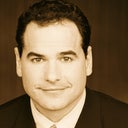Why is EKG (+blood tests) required for upper eyelid blepharoplasty under IV sedation based solely upon age with no heart issues?
Medical clearance is standard form not tailored to individual: H&P, CBC, & CMP (30 d), EKG (6 mo), Cardiac Clearance if applicable. Patient age >60, no heart issues, exercise tolerance high (e.g cardio 860 calories in 65 min). All specialty societies recommend against routine ECG. One study cited in ACC/AHA guidelines found 20% false positives in asymptomatic individuals undergoing pre-op ECG. Does anyone have any insight into why pre-op testing is necessary when patient objects?





